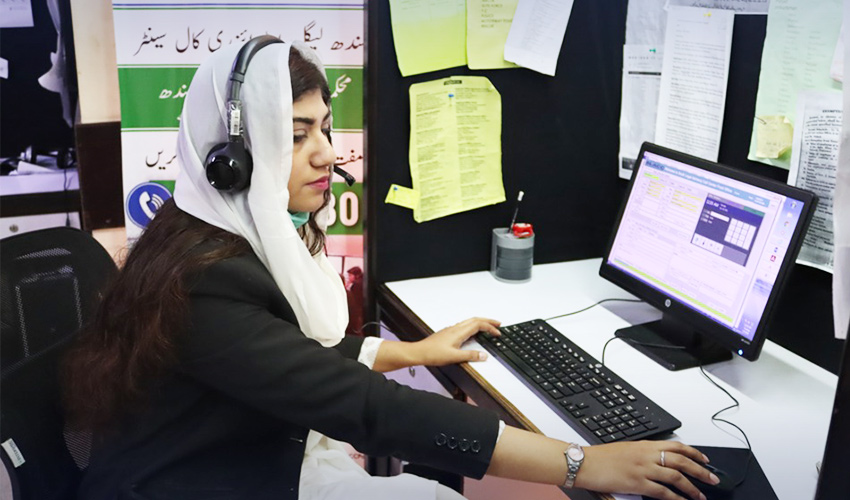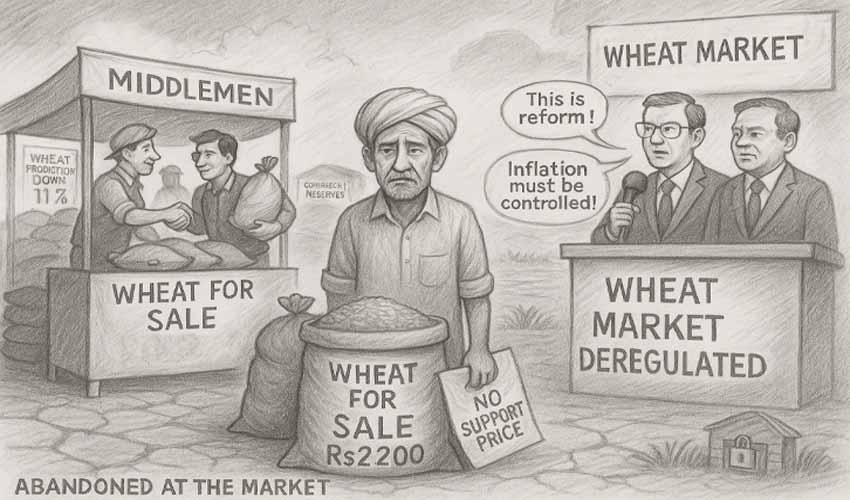Once upon a bright morning, the clock's hands moved to 10:30am, and I found myself seated across two remarkable individuals, Kamran and Rukhsana Parveen Khokar. Their fingers danced expertly across the keyboards of their laptops as they shared with me a story of immense significance.
It was a story about the Sindh Legal Advisory Call Centre (SLACC), a gift from the Sindh government to the citizens of Pakistan.
"Kashif sahab, our call centre received 3,492 calls in August this year, which was up 56.87% from the last month, after the public awareness campaign on national television, run in collaboration with the Sindh government, was a success," Kamran informed me with a subtle smile on his face.
“A majority of the phone calls, 1,613 to be exact, were received from Karachi, followed by Hyderabad, Lahore, Khairpur, and Larkana at 225, 196, 82, and 70 calls, respectively. The average age of the callers was 41, with 24% of the callers being women. However, many times, men called in on behalf of the women in their households, so the figure is much higher,” Rukhsana explained.
Kamran and Rukhsana are dedicated members of the Legal Aid Society (LAS), a Karachi-based NGO, and have been entrusted with the SLACC operation. The center was initially established by LAS in 2014 and later evolved into a successful public-private partnership in 2018 with the Sindh government through the law department.
The provincial government, under the Legal Empowerment of People Program in Sindh (LEPPS), provides invaluable support to SLACC, offering high-quality, free legal advice to citizens across the country.
The service, accessible at 0800-70806, has been a beacon of guidance for citizens on legal issues ranging from domestic disputes to violence, socio-economic matters, Zakat and Ushr, business disputes, and more since its inception.
Under the watchful eye of former Supreme Court judge, Khilji Arif Hussain, a panel of expert lawyers operates the call center daily from 9am to 5pm, providing real-time advice to callers facing legal dilemmas. After hours, an automated recording system records the calls, and callers are contacted the following day for assistance.
Furthermore, the upcoming integration of SLACC into the Sindh chief secretary's complaint portal promises to empower marginalized communities and expedite the resolution of public service issues.
About the categories of civil and criminal law cases that the center receives the most calls about, Rukhsana replied: "The top five civil law case categories are family law, partition law, service law, civil procedure law, and specific relief act. On the other hand, the top five categories for criminal law cases pertain to the code of criminal procedure, gender-based violence against women, miscellaneous, illegal disposition, and offenses under the Pakistan Penal Code."
Kamran added, "In August, 41 cases were referred to the organization's Alternate Dispute Resolution (ADR) wing, which facilitates dialogue between parties and provides trained mediators to expedite settlements and deliver swift relief. Additionally, 64 cases were referred to a sister wing of LAS called Women's Right to Legal and Matrimonial Property (WRLMP), which takes up cases for women who lack the financial resources to fight for their rights."
This breakdown of cases shared by Kamran shed light on the rising fight for women's property rights, driven by high inflation levels. Women are increasingly seeking advice on separation or maintenance from abusive husbands.
These statistics serve as a call to action for policymakers, bar associations, and law enforcement agencies to allocate adequate budgets to address these pressing issues. They also provide valuable insights for upcoming law graduates, helping them understand the challenges faced by people at the grassroots level.
The SLACC, a gift from the Sindh government, is truly priceless, and its impact on society is immeasurable.


























